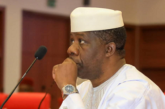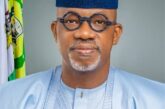
The Federal Government, on Wednesday, announced that an inter-ministerial committee had been set up to fine-tune the Student Loan bill that was signed recently by President Bola Tinubu.
The committee, which will meet on Tuesday, is expected to work together and ensure that the disbursement of the student loans starts by September 2023 for the 2023/2024 academic session.
The Permanent Secretary, Federal Ministry of Education, Andrew Adejo, who disclosed these to journalists at a press conference in Abuja, said higher institutions cannot introduce tuition fees because of the introduction of the loan scheme.
According to him, the institutions are not autonomous.
Committee meets
“The President has approved the constitution of an inter-ministerial committee on student loans made up of the necessary ministries and agencies. The inaugural meeting will come up on Tuesday, June 20, 2023. The President has also directed that by September/October 2023/2024 academic session, he wants to see recipients of the loan. So it’s a serious business.
“Between now and then, we have to fine-tune the processes. The loan purpose is for the beneficiary to finish an education programme. The recovery doesn’t start until you get employed. The committee has been given specific terms of reference.
“Without trying to say what the committee will do, we don’t want to make it something that only people who want to go to public schools will benefit from. Anybody that is indigent can benefit. Private schools already pay tuition so you have to give somebody who wants to go to a private school the opportunity to get the loan and pay tuition,” Adejo stated.
Reacting to reports on the introduction of tuition fees, the permanent secretary noted that Federal Government-owned universities lacked the financial autonomy to introduce tuition fees at the moment.
“Government alone cannot foot the bill for education and that is why we are doing public-private partnerships. Universities are autonomous but what they don’t have yet is financial autonomy. When they get that, they will be able to answer the questions on the introduction of tuition,” he stated.
Meanwhile, a committee made up of representatives of the Academic Staff Union of Universities, Nigeria Labour Congress, Nigerian Bar Association, Vice Chancellors Forum of Nigerian Universities, rectors of polytechnics, provosts of colleges of education, Ministries of Education, Finance, among others, will be part of the board of the Student Loan Fund.
According to the Act, which was sighted by our correspondent in Abuja, it was stated, “The committee shall consist of the Governor of the Central Bank of Nigeria as the Chairman; the Secretary of the Fund, who shall be appointed by the Chairman; the Minister responsible for Education; the Chairman, National Universities Commission; a representative of Vice-Chancellors forum of all Nigeria Universities; a representative of the Rectors forums of all Nigerian Polytechnics and Provosts forum of all Colleges of Education in Nigeria; the Minister responsible for Finance or his representative; the Auditor-General for the Federation; a representative of the Nigerian Labour Congress; a representative of the Nigerian Bar Association; and a representative of the Academic Staff Union of Universities.”
On the source of funding, it was stated that “The sources of the Fund shall consist of education bonds; education endowment fund schemes; one percent of all taxes, levels, and duties accruing to the government of the federation from Federal Inland Revenue Service, Nigerian Immigration Service, and Nigerian Customs Service; one percent of all profits accruing to the government of the federation arising from oil and other minerals; all sums accruing to the Fund by way of donations, gifts, grant, endowment or otherwise; and other revenue accruing to the Fund from any other source.”




